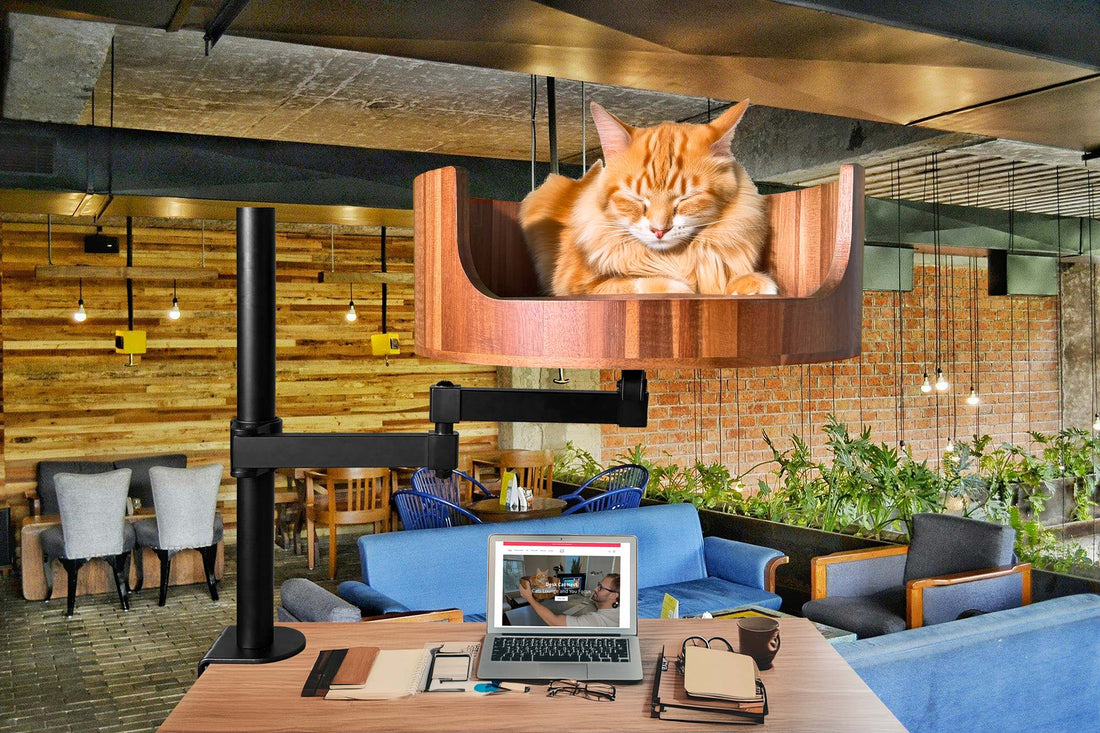
Why Do Cats Make Noises at Birds? Understanding Their Behavior
Share
As any cat owner knows, felines are notorious for making noises at birds. Whether it's a chirp, a chattering sound, or a full-fledged meow, cats seem to have a special fascination with their feathered friends. But what drives this behavior? In this article, we will explore the reasons behind why cats make noises at birds, delving into the science behind their behavior and shedding light on this seemingly mysterious phenomenon.
Cats are known for their predatory instincts, and this extends to their interactions with birds. Through their vocalizations, cats are communicating their excitement, frustration, and hunting instincts when they see birds flying outside their windows. By understanding why cats make noises at birds, we can gain insight into their natural behavior and better interpret their actions. Additionally, exploring this behavior can also provide valuable information for cat owners on how to enrich their feline companions' lives, whether it's through engaging toys, interactive play, or setting up a bird-watching station for their cats to enjoy. Join us as we unravel the mysteries behind why cats can't help but make noises at birds.
1. Cats make noises at birds as a form of communication, either to express excitement, frustration, or predatory instincts.
2. Understanding a cat's body language and vocalizations can provide insights into their behavior towards birds.
3. Cats may meow, chirp, or chatter at birds, showcasing their natural hunting instincts and desire to interact with prey.
4. By observing a cat's responses to birds, owners can better understand their pet's needs and preferences.
5. Knowing why cats make noises at birds can help improve the relationship between cats and their owners, promoting a deeper bond and enriched environment for the feline.
Types of Noises Cats Make at Birds
Cats make a variety of noises at birds, each serving a different purpose. These noises can include chirping, chattering, meowing, growling, or hissing. Chirping is often used by cats when they are trying to mimic the sound of a bird to attract or communicate with it. Chattering is a predatory behavior where cats make a rapid clicking noise with their teeth when they see a bird outside. Meowing is a common vocalization used to get attention or express excitement, while growling and hissing are defensive noises when cats feel threatened or territorial.
Instinctual Behavior in Cats
The noises that cats make at birds are often rooted in their instinctual behaviors. Cats are natural predators, and their desire to hunt and catch prey is ingrained in their DNA. When they see birds outside, it triggers their hunting instinct, which can lead to various vocalizations. Cats use their vocalizations as a way to communicate with the birds, either to lure them closer or to express their frustration at not being able to catch them. Understanding this instinctual behavior can help cat owners better support their pets in a safe and controlled environment.
Training and Redirecting Behavior
If a cat's noises at birds become excessive or disruptive, there are ways to train and redirect their behavior. Providing interactive toys or puzzles can help satisfy their hunting instincts and keep them entertained indoors. Training with positive reinforcement can also help teach cats appropriate behaviors when it comes to birds or other wildlife. Additionally, creating a cat-friendly environment with window perches or shelves can give cats a safe vantage point to observe birds without feeling the need to vocalize or chase them. By understanding their behavior and providing appropriate outlets, cat owners can help their pets live harmoniously with the wildlife around them.
Desk Cat Nest FAQ
Why do cats make noises at birds?
Cats make noises at birds as a natural instinct. It is a way for them to communicate and express their predatory instincts. The sounds they make, such as chirping or chattering, are often a sign of excitement and anticipation of hunting.
Will providing a Desk Cat Nest help curb my cat's behavior towards birds?
While a Desk Cat Nest can provide a comfortable and safe space for your cat to relax and play, it may not necessarily curb their behavior towards birds. Cats are natural hunters and their behavior towards birds is instinctual. However, providing enrichment activities and toys in the Desk Cat Nest can help redirect their energy and focus.
Is the Desk Cat Nest safe for my cat to use?
Yes, the Desk Cat Nest is designed with your cat's safety in mind. It is made of durable and non-toxic materials to ensure that your cat can safely play, rest, and observe birds from a comfortable and secure space.
How do I clean the Desk Cat Nest?
The Desk Cat Nest can be easily cleaned with a damp cloth or a gentle cleaning solution. It is also recommended to regularly vacuum or brush off any pet hair or debris that may accumulate inside the nest. Additionally, the removable cushion can be machine washed for added convenience.
In conclusion, providing your cat with a comfortable and secure resting spot, such as the Desk Cat Bed, can help alleviate their instinctual urge to make noises at birds. By offering a designated space for relaxation and observation, this product allows your feline friend to feel safe and content, reducing their desire to vocalize their excitement or frustration towards nearby birds. Additionally, the elevated design of the Desk Cat Bed gives your cat a better vantage point to observe birds from a distance, without feeling the need to engage in noisy behavior. Investing in a Desk Cat Bed is a valuable choice for both you and your cat, promoting a harmonious living environment and fostering a sense of peace and contentment for your beloved pet.



















































